But most parade attendees weren’t buying Orbán’s propaganda.
Budapest Defies LGBTQ Ban With Massive Pride March
More than 100,000 people marched despite threats of fines and jail for attending the city’s banned LGBTQ Pride parade.

More than 100,000 people marched through the streets of Budapest, Hungary on Saturday, June 28 to protest a new law banning LGBTQ events, including the country’s annual Pride parade.
The law, approved earlier this year by politicians aligned with the ruling Fidesz-Hungarian Civic Alliance party, led by Prime Minister Viktor Orbán, claims to “protect children” from exposure to demonstrations or depictions of LGBTQ identity. Under its provisions, individuals attending LGBTQ-themed events can be fined up to 200,000 forints (approximately $586), and police are authorized to use facial recognition technology to identify participants.
Critics argue the law violates the right to freedom of assembly. Outrage has only intensified, with legions of straight allies joining what would have been the city’s official Pride parade on Saturday, historically a more modest gathering of LGBTQ people and supporters.
Ahead of Saturday’s parade, Orbán warned people not to attend, threatening “clear legal consequences” for anyone who took part. According to The New York Times, participants faced fines, while organizers risked jail sentences of up to a year.
Budapest Mayor Gergely Karácsony, a member of the liberal Green Party, declared the parade a municipal event that did not require a police permit, citing its co-organization by city hall. He dubbed it “Budapest Pride Freedom,” framing the march as a celebration of Hungary’s regained freedom following the 1991 withdrawal of Soviet troops and the fall of communism.
Police insisted the parade remained illegal and that Karácsony lacked the authority to assure attendees they wouldn’t face prosecution. Lawyers advised marchers to refuse any citations. Meanwhile, Orbán’s justice minister said police would use surveillance cameras to identify participants and mail them notices of fines.
Authorities granted a permit for an anti-LGBTQ march to coincide with the Pride parade, but most news outlets in Budapest reported it was poorly attended. According to The New York Times, when a small group of the nationalist “Our Homeland Movement” supporters blocked a bridge on the original route, Pride marchers simply crossed using another bridge.
Pro-Fidesz media outlets attempted to sway public opinion by publishing photos of scantily clad men and women simulating sex acts at Pride events in San Francisco and Berlin ahead of the parade. They also circulated images from a youth music festival as supposed “proof” that LGBTQ people threaten Hungarian children.
Aware of these tactics, organizers urged attendees to avoid exposing genitals or nipples and to respect local norms. The vast majority of marchers wore shorts and T-shirts.
Police largely observed from the sidelines, avoiding predictions of large-scale clashes between law enforcement and members of the LGBTQ community. A minor scuffle broke out between attendees and a Dutch evangelical who walked through the crowd shouting “traitors to God,” followed by a Swedish man waving a Bible.
Unable to deliver the debauchery promised to their right-wing audience, pro-Fidesz outlets shifted focus to traffic disruptions and minor scuffles, with Magyar Nemzet running a banner headline: “Chaos at Budapest Pride.” The coverage underscored how anti-LGBTQ voices continue to distort reality and vilify the community — even in the absence of controversy.
Orbán, Hungary’s prime minister for the past 15 years, is expected to face a serious challenge in next year’s election. His main opponent, Péter Magyar — a former Fidesz member whose Tisza party is currently outpolling Fidesz — has gained popularity while distancing himself from the excesses of the political left. Hoping to damage his standing, Orbán and his media allies have pressed Magyar to take a clear position on Budapest Pride, aiming to portray him as a social liberal unconcerned with “protecting children.”
“A large chunk of Hungary’s electorate doesn’t have a problem with Pride or [LGBTQ] people,” said Peter Kreko, director of the Political Capital Institute, a Budapest-based think tank, in an interview with The Washington Post. “But on the right, this is a topic that plays.”
“What is most painful for me is to see how stupid they think we all are,” said Edit Rocza, a special education teacher attending the Pride parade for the first time, in an interview with the New York Times. She called the government’s fear-mongering and anti-LGBTQ rhetoric “a distraction from all the stealing and other real problems we have in this country.”
Another attendee named Luca told the BBC she wants a country of “diversity” and fears her daughter may grow up “in a country where she can’t love anyone she wants to.” She warned that banning Pride events sets a dangerous precedent for restricting freedoms beyond the LGBTQ community, including the right to assemble.
“We have a law that bans people who are different from others to gather,” Luca said. “This is why we are here. Because it’s hurting our rights. That’s why we came.”
Support Metro Weekly’s Journalism
These are challenging times for news organizations. And yet it’s crucial we stay active and provide vital resources and information to both our local readers and the world. So won’t you please take a moment and consider supporting Metro Weekly with a membership? For as little as $5 a month, you can help ensure Metro Weekly magazine and MetroWeekly.com remain free, viable resources as we provide the best, most diverse, culturally-resonant LGBTQ coverage in both the D.C. region and around the world. Memberships come with exclusive perks and discounts, your own personal digital delivery of each week’s magazine (and an archive), access to our Member's Lounge when it launches this fall, and exclusive members-only items like Metro Weekly Membership Mugs and Tote Bags! Check out all our membership levels here and please join us today!







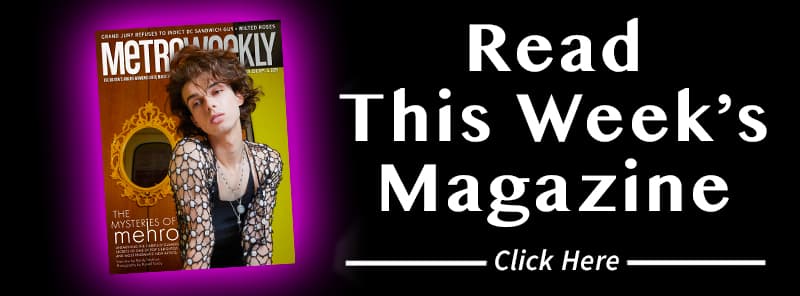
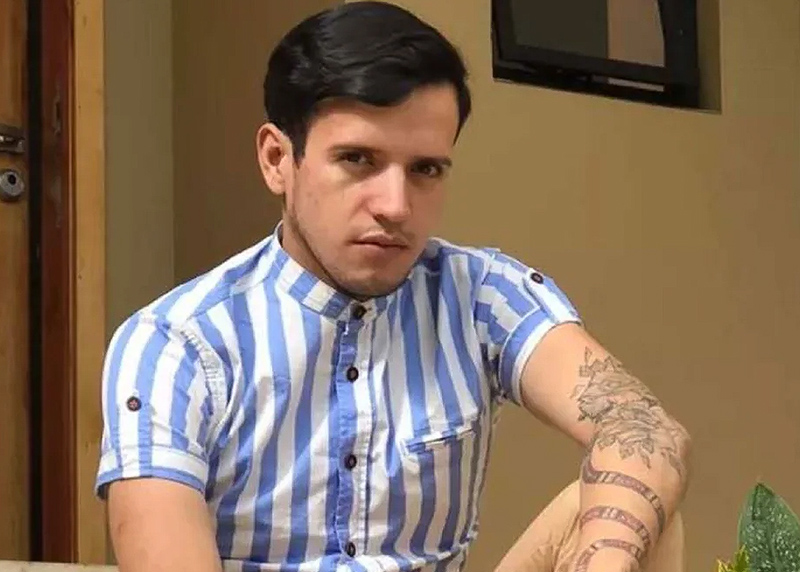
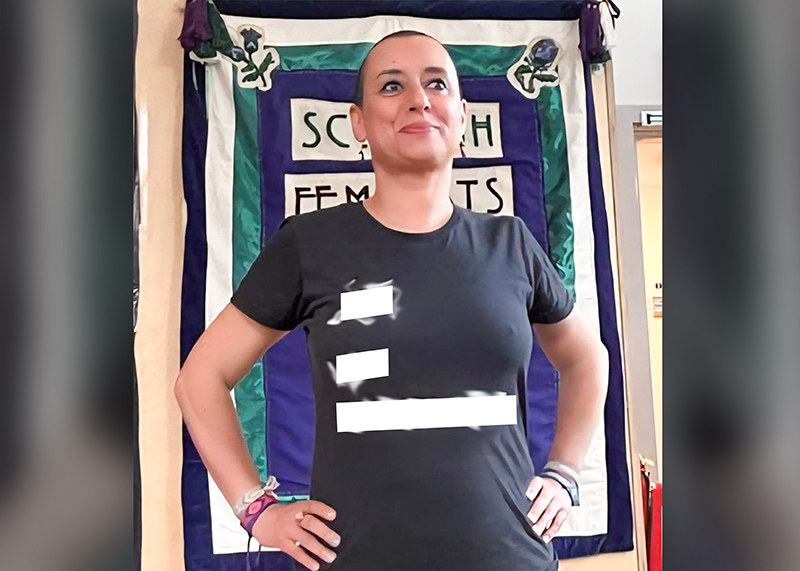
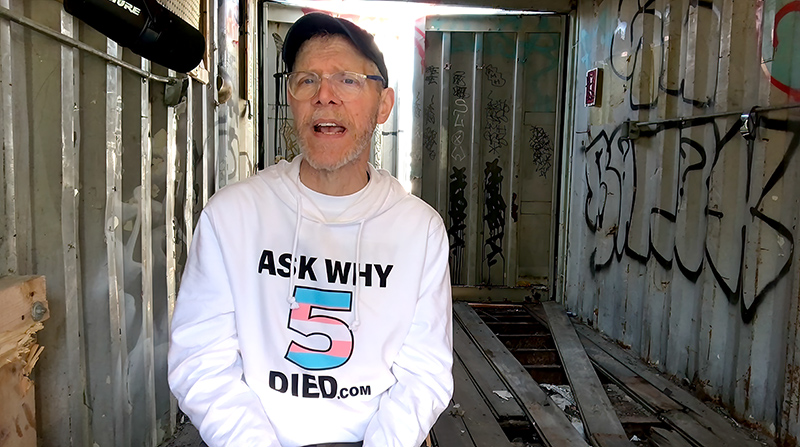

















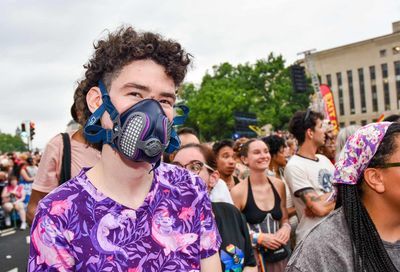
You must be logged in to post a comment.